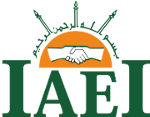Human Capital Investment : Case of State-Owned Banks and Sharia Banks
DOI:
https://doi.org/10.28918/ijibec.v4i1.1979Keywords:
Human Capital Investments, Size, Leverage, Financial PerformanceAbstract
The objective of study is to find the influence of company size, human capital investments, and leverage on financial performance. Case studies on State-Owned Banks and State-Owned Sharia Banks in Indonesia for the 2012-2018 period. The number of samples uses in the study were four State-Owned Banks and four State-Owned Sharia Banks in Indonesia. The samples of this study were the financial report that taken from the Indonesia Stock Exchange and the Indonesia Financial Service Authority with period 2012-2018. The analysis method for this research is linear regression methods, test of classic assumption, determinant coefficient, F-test, T-test. The findings show that the size and leverage variables have no significantly effect on financial performance in State-Owned Banks, while the human capital investments have a positive effect and significantly on financial performance. The results also show that human capital and leverage have no impact on financial performance in State-Owned Sharia Banks, but has size have significant effect on financial performance. Human capital investment was most variable that impact financial performance significantly in State-Owned Banks. Otherwise, size was the most significantly variable that effect financial performance in State-Owned Sharia Banks.














